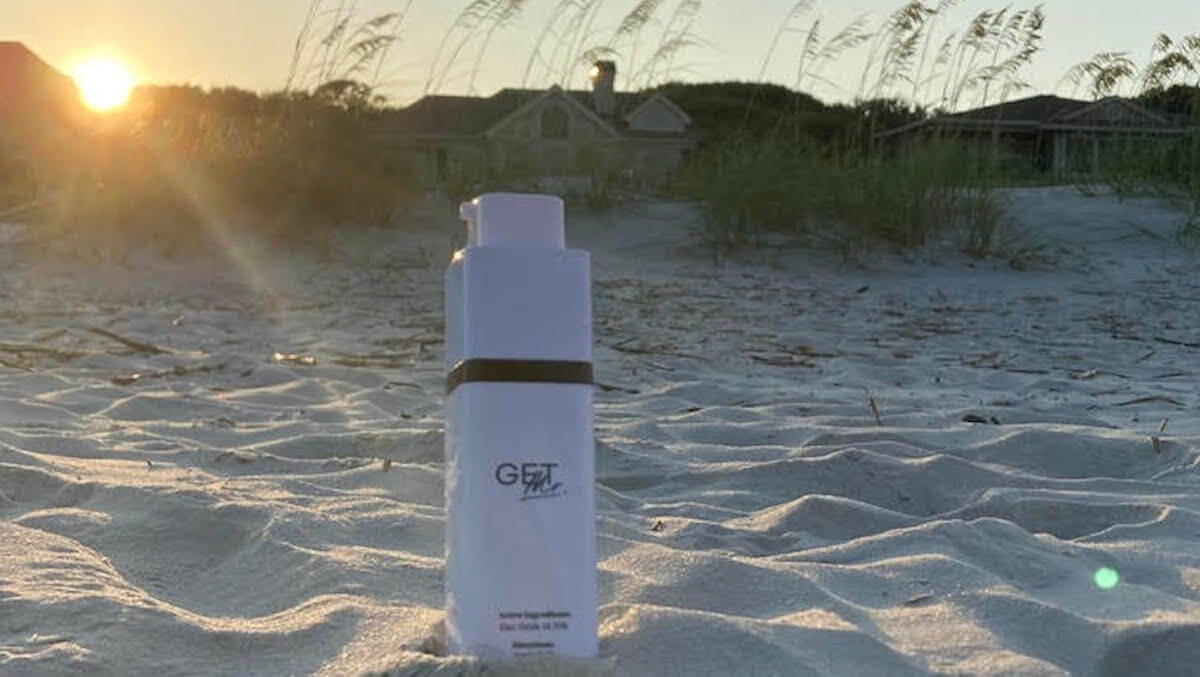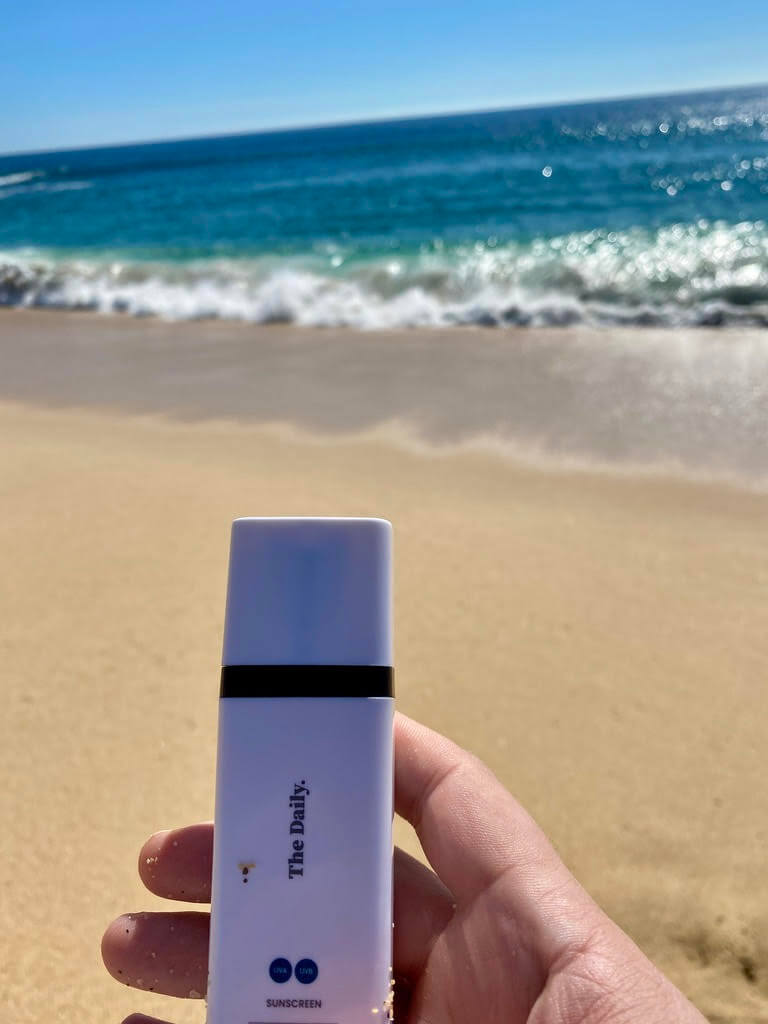As a primary care provider, nurse practitioner or PA, are you interested in learning more about how you can have skin concerns in your practice co-managed with an 'on-demand' dermatologist? Learn more here.
If you are a patient seeking a first or second opinion from a dermatologist on a spot mole or rash of concern, you can access a dermatologist via your local primary care provider or urgent care clinic. Find our list of partner locations here.
What does SPF stand for? With beach days, holidays, sun-kissed skin, and the warm embrace of the summer quickly approaching, it now becomes more important than ever to practice sun safety. However, although these hot and beautiful days are the most crucial, you must bear in mind that it is vital to wear sunscreen all year round, even in northern climates.
Often, most of us put on sunscreen because we know we have to. Our mothers and dermatologists alike have instilled the need for high SPF sunscreen since we were in our prams - but what does SPF mean? And why is it so important?
We asked our one and only Dr. Goldstein, who provided us with the answer to "what is SPF", and even gave us several recommendations to help those looking for a solid SPF routine.
Let's dive in and find out all we need to know about SPF.
What Does SPF Mean? What Does SPF Stand for?
To answer the question "what is SPF?" - simply put, SPF stands for sun protection factor. Defined, it refers to a corresponding measurement for the amount of overall exposure the applied sunscreen will protect you from the sun's UV (ultraviolet) rays.
Two basic types of ultraviolet rays reach the earth's surface—UVB and UVA. UVB rays affect your skin's outer layer primarily -the epidermis. It's what is responsible for sunburns, along with some surface-level skin cancers. UVA rays, on the other hand, are able to penetrate your skin's lower level -the dermis. UVA rays are typically associated with tanning.
While some sunscreens are able to protect against both UVA and UVB, SPF numbers in some sunscreens typically only refer to UVB rays. However, you are able to source one that protects against both.
Why Should I Wear Sunscreen?
Prevent Skin Cancer
The biggest and most important reason of them all - sunscreen helps to prevent skin cancers. In fact, the three most common types of them: squamous cell skin cancer, basal cell skin cancer, and melanoma. Radiation from UV rays is one of the top risk factors that cause the three cancers outlined above. However, this is why consistent and adequate protection via sunscreen application is critical to lower your risk.
Sunscreen Prevents Premature Aging
Ultraviolet radiation from the sun is also responsible for an estimated 90% of visible aging signs. It breaks down collagen and elastin in the skin, which ultimately results in wrinkles, fine lines and discoloration. Offenders of the aging process are divided into two categories: extrinsic aging (induced by chronic exposure to the sun's radiation, chemicals, pollution, and other environmental factors), and intrinsic aging (influenced by genetics and chronologic aging).
In addition to this, UV rays also damage cells that produce pigments. They are called melanocytes. When damaged, it results in the overproduction of hyperpigmentation caused by melanin.
Using sunscreen regularly allows you to bask in youthful-looking, smooth and glorious skin for many more years to come.
A Reduced Risk of Hyperpigmentation
Speaking of hyperpigmentation - sunscreen reduces the risk of it occurring. Hyperpigmentation is a common skin condition that is caused by too much exposure to the sun. It causes your skin to produce dark patches, due to the changes in the production of melanin (which is what gives skin its nourishing color). Those with duskier skin are naturally more receptive to hyperpigmentation.
Prevents Skin Inflammation
Sunscreen plays a vital role when it comes to the prevention of skin inflammation.
The sun's UV rays also damage the DNA of immune-protecting cells. When unprotected, it can lead to inflammation and free radical damage inside the body, and of course, the skin. Immune suppression doesn't provide our body with a fighting chance - it decreases our cells' ability to protect us from general illnesses and skin cancer. This means that your immune system is key to maintaining a healthy body, which makes using sunscreen on your skin a vitally important aspect of your overall health.
Sunscreen Reduces Sun Sensitivity
Lupus and rosacea are just two of the many skin conditions in which the sun's UV rays are able to cause redness and burning in the skin. Some medications can make you very likely to burn more easily. Sunscreen helps to prevent sun sensitivity, which is particularly helpful as it blocks solar irritation in those who experience irritation from sun-sensitive conditions.
What Type of Sunscreen Should You Use?
Now that you know the answer to the lingering question; "what does SPF mean?", we can go on to discuss which type of sunscreen to go for.
Can You Apply Sunscreen After Moisturizer?
By now, you should undoubtedly be aware of the fact that sunscreen is arguably the most critical part of any skincare routine. As a general rule of thumb, sunscreen should always be applied as the final step of your skincare routine. Keep this in mind - "Cleanse, medicate, moisturize, protect. "
While sunscreen is such a vital aspect of your everyday life, you certainly shouldn't rely on it alone. Sure, it's a fantastic way to protect yourself from UV rays, but it's not the only solution.
First and foremost, we know that being in the sun is such a fun and glorious experience when embracing the great outdoors, but rather, you should try your best to limit your time in direct sunlight as much as possible. This is not to say that you shouldn't go outdoors and lock yourself in your room all day - not at all. In fact, if anything you should get out more. Just ensure that you cover up well. That means wearing hats, sunglasses, and even try to wear thin, long-sleeve items of clothing.
Second, if you're somebody that tends to forget to keep reapplying your sunscreen throughout the day, you should definitely start to look for other options. One option for the men of the world is right here at GetMr - it's called The Daily.
The Daily offers an excellent 3-in-1 solution that includes a moisturizing face lotion, broad-spectrum weightless mineral SPF 30, and soothing aftershave. This specifically designed formula created by skincare expert, Dr. Goldstein is built to refresh and restore skin.
It's formulated with men in mind, using data from 1000s of men, and is great for oily and acne-prone skin. It's incredibly lightweight, moisturizing, never irritating, and lasts approximately one month when applied according to directions.





